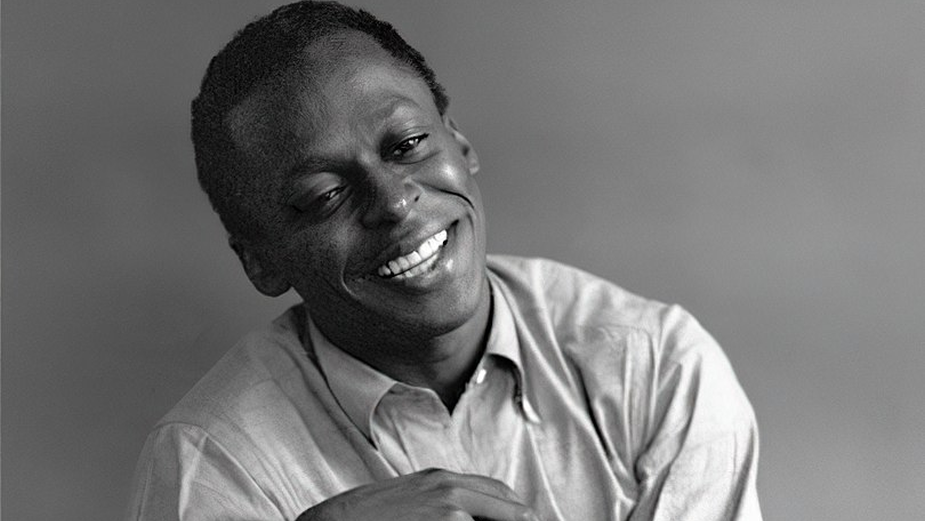
My Creative Hero: Miles Davis

Tevin Prince is a producer, mix engineer, artist, songwriter as well as manager of artist relations at Made Music Studio. He is also known for serving at the right hand to mix engineer Willie Green (The Roots, Wiz Khalifa, Armand Hammer, The Alchemist), and has a passion for discovering new and exciting sounds and music. He has worked, with the MMS team, on a diverse range of projects as a co-producer for the NBA on ESPN, Wells Fargo, and General Mills.
When Tevin is not working or deep in a Pro Tools session, he is also committed to helping and teaching children from underserved communities. He is excited to continue pursuing ways to push the culture and artistry of music, as well as making a positive impact in the world of music.

LBB> Who would you say is your creative hero?
Tevin> Miles Davis. He didn’t care about anything but the music, and I relate to that — sometimes nothing else matters to a musician but music. I’m in with love music. It's the first thing I think about in the morning, the last thing I think about before I go to sleep. That is my first love, my only love.
LBB> How long has Miles Davis been important to you and what are your first memories of coming across his work?
Tevin> Since I was 18 years old. I had just learned about the producing side of music, so I was learning sampling, and during that I heard "So What" on YouTube. I was just like "what is this?" From there I just started listening to everything. I got into Kind of Blue and it just didn't stop.
LBB> How did you go about finding to learn more about him and his work?
Tevin> I looked up every interview I could get my hands on! I was Wikipedia-ing info — birth, death, all of that. And of course I downloaded his entire discography just to learn more, just to hear more.
Since then, I’ve gotten two original vinyl records — Sketches of Spain and On the Corner. Those are my babies. I wish I could find an original Kind of Blue but I can't, it's expensive. I don't want to hear a remaster, I want to hear the original. I want to hear when the floors were squeaking and you hear people walking and talking. I love that. And what I loved so much was that the more I heard, the more I fell in love with it.
LBB> Why is Miles Davis such an inspiration to you?
Tevin> He’s an inspiration because I can listen to Kind of Blue, Sketches of Spain, Bitches Brew, On the Corner, any of those, and I'll never feel the way I felt listening to the previous album before.
Everything Miles Davis did felt different. When he got into this jazz fusion age, everybody was like "what the hell, that's not jazz music." But why stay the same? Things change, you change as a person, with each album you're a different person, so why would he stay the same just because that’s what the audience wants to hear? Even if Kind of Blue is the best-selling jazz album ever, he didn’t continue to make the same kind of album over and over again. His music was about embracing where he was at that moment.
It inspired me to me look at my music that way — it’s all personal, whether we're talking about an album, or an EP, or a song. It's just about embracing whoever you are at that moment in time. That no matter how guarded I might be, no matter how I might feel, I'll put every emotion that I have into this thing, and that’s what that song is going to sound like. So when you’re listening to it, though you may not know me, you know me.
LBB> How does Miles Davis influence you in your approach to your creative work?
Tevin> Hip hop is my baby, but jazz may be the greatest musical genre. It’s about how you feel in the moment. When Miles Davis made Kind of Blue, he didn't give out any sheet music or anything, and it was done in a few days. He had this philosophy that if you get great musicians, they'll always find what's between the notes.
When I work with writers at MMS, I like to leave the music to blossom that way. As a producer, I say, "I know this is what the brief says, but I don't want you to write what you think they want. I want you to write what you hear. Because I might not hear what you hear, and I might love what you hear.”
Of course I might want a writer to change X, Y, Z, maybe, but I'd never want a writer or producer to feel like they have to conform to any person, place or thing. I'd rather them just completely be themselves. It leads to a lot of surprising creative ideas. How can we take whatever a client was expecting, and take those pieces apart to make something else that they didn't expect, but will love?
LBB> What piece or pieces of Miles Davis’ work do you keep coming back to and why?
Tevin> 'Flamenco Sketches'. Which is crazy because my favourite part in there isn't Miles, it's actually John Coltrane. But if heaven had a theme song, that would be it. If I died and went to heaven right now, that's what I want playing over the loudspeaker. When I first heard it, it was a feeling that I'd never felt before. Every instrument is in complete conversation with one another, and they’re not talking over each other or fighting for space — it's just unity.












